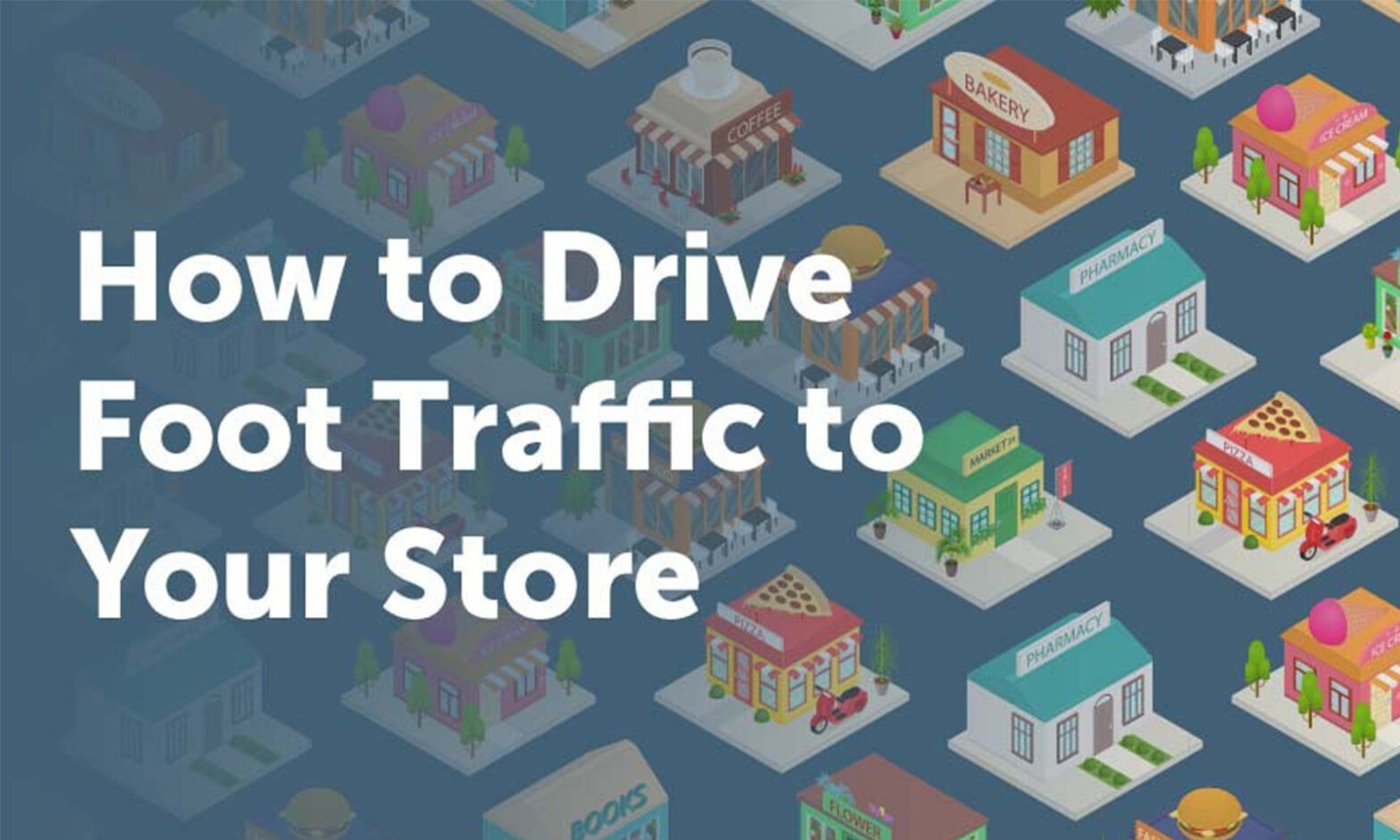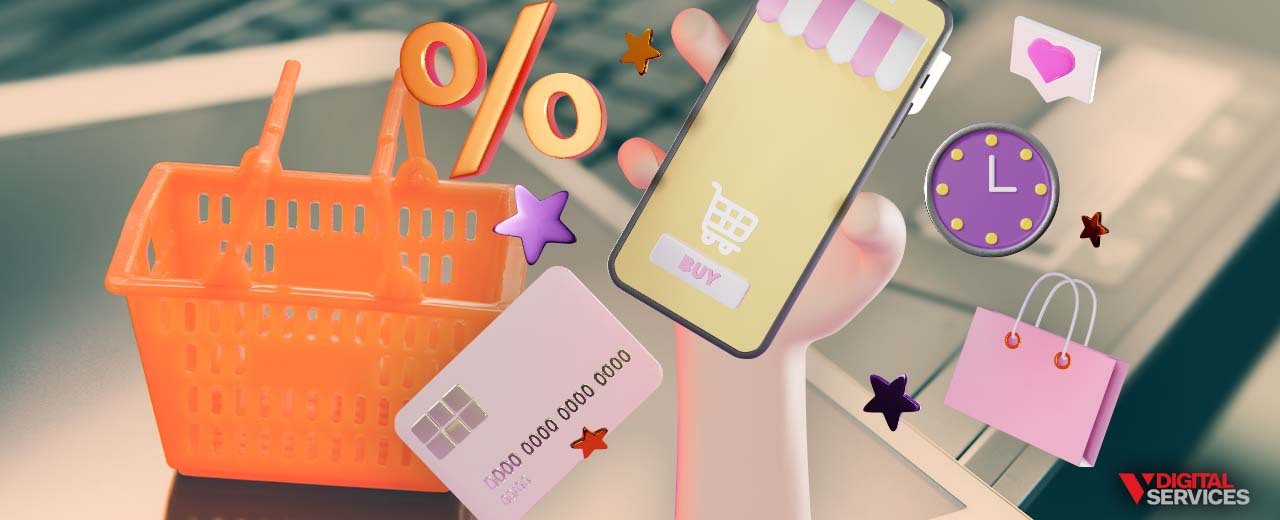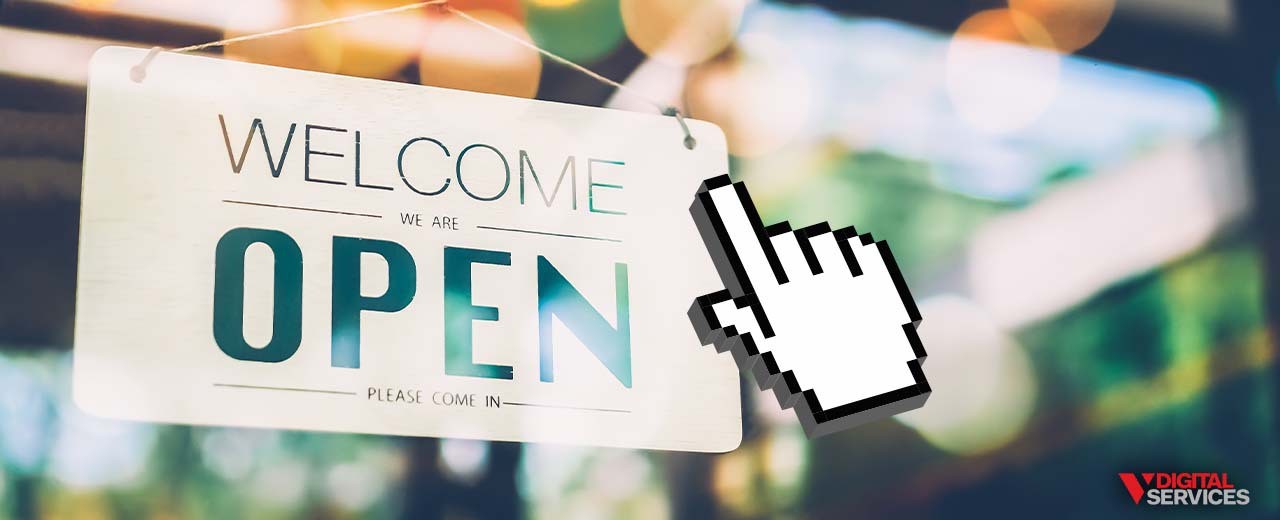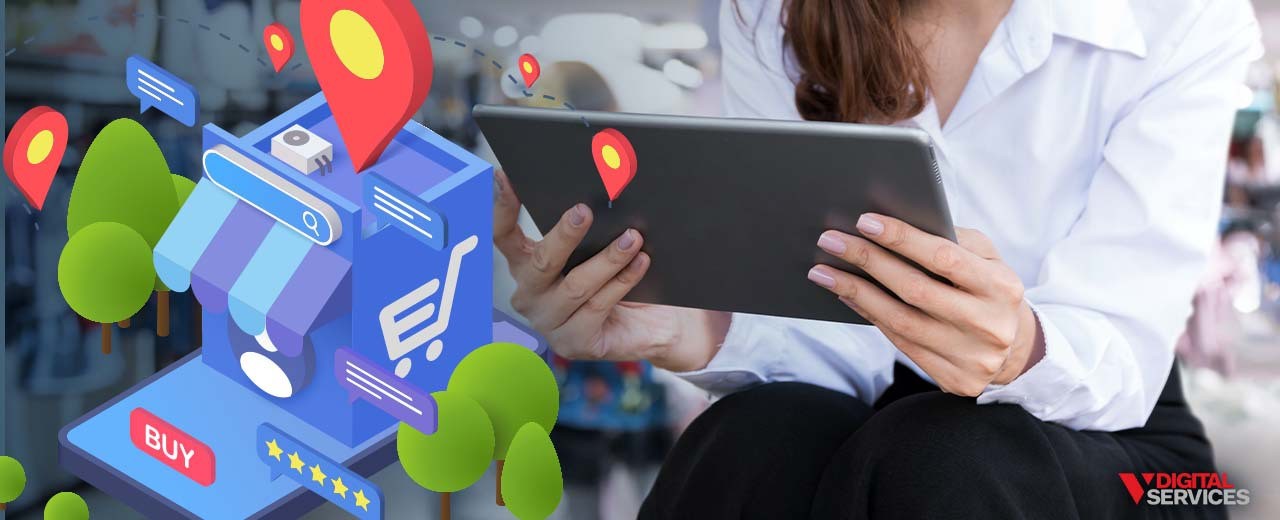From the earliest beginnings of a business, figuring out how to attract a steady stream of traffic has been one of the primary challenges faced by every retailer. And now that modern consumers have more options than ever, figuring out how to drive traffic to your store has never been more important.
Foot traffic is directly tied to sales, and by extension, the profitability and success of your business. For many businesses, it’s become increasingly difficult to bypass the competition in our age of digital consumerism. But even though it might feel like the digital landscape presents more than its fair share of challenges, it can also be a major asset in your pursuit of increased traffic.
What does that mean for your business goals? Ultimately, a combination of digital and on-site strategies is the best way to attract more customer traffic to your store.
Why Digital Marketing Matters for Foot Traffic?
In many cases, business owners assume that online advertising tactics are only used for digital purposes. For example, a small brick-and-mortar barbershop owner might mistakenly believe that their business won’t benefit from digital marketing strategies because all of their business is conducted in person.
But actually, there is a direct connection between your online marketing plan and foot traffic in-store – and Google has the statistics to prove it. More than 75% of people who use their smartphones to search for products or services in their area will visit a nearby business within 24 hours, and nearly 30% of those individuals will end up making a purchase at that business. That, combined with the fact that 1 in 3 of all mobile searches is specifically related to location (i.e., “furniture stores near me”), highlights the importance of your business’s digital presence.
If potential customers can’t find your business online, how will they be able to visit your store? And if customers aren’t locating your business via an online search, you can be sure that they’re coming across your competitors instead.
As you can see, digital marketing is just as valuable as in-store tactics when it comes to figuring out how to attract customers to your store. That’s why you’ll find a wide variety of both types of strategies in this guide, assembled by your trusted team of marketing experts at V Digital Services.
Let’s get started!
10 Practical Ideas to Increase Foot Traffic to Your Store
1. Get active on social media.
We don’t have to tell you that social media is a dominant presence in our society, affecting virtually every aspect of our lives. So, it makes sense that social media for businesses has evolved into a marketing necessity.
You’re probably wondering how to use social media to increase foot traffic – and the answer is that there are many ways to tap into the power of social platforms to achieve that goal. Here are a few suggestions:
- Offer incentives for customers that engage with your business via social media. For example, you could run a campaign that provides your social media followers with an exclusive coupon for in-store use. This could be the small “nudge” they need to take action and visit your business, and in turn, make a purchase.
- Get your business name out there by interacting with local social media communities. One of the most obvious ways to boost traffic to a store is by increasing its community exposure. This same concept applies to social media. Building a stronger social media presence (especially within your local community sphere) will introduce new people to your business, drawing in customers that might not otherwise have found you.
Capitalize on social media and SEO by using your social networks to bring people to your website, and in turn, your store. The relationship between SEO and social media is somewhat complex and often debatable. However, it’s clear that a business’s social media profile can be an invaluable gateway of sorts, bringing relevant users to their website and thus strengthening search rankings in the long run. In other words, a successful social media plan can translate into a higher ranking in search results, driving a better rate of traffic, conversion, and even sales.
2. Set up (and optimize) your Google Business Profile listing.
Google Business Profile (GBP) is a free online tool that every business should be using to its fullest potential, especially because it provides a myriad of benefits. If you’ve ever searched for specific products or services in your area, then you’ve most likely made use of Google Business Profile: it’s that short segment of business listings that appear at the top of locally-oriented search results.
Let’s say you own a sports memorabilia shop. When people in your area conduct a Google search for something like “baseball cards for sale near me,” a handful of GBP listings will be the first thing they see on the results page. So, you’ll want to make sure you claim a spot in those listings and earn the click that will turn into in-person traffic at your store.
This means creating your GBP and tapping into smart strategies to optimize it for local search (and we teach you exactly how to do that here, in this handy resource). Then, you can be confident that the right people are finding your listing at the right time – and that they have the information they need to come to your store’s physical location.
Remember those impressive statistics we mentioned earlier, illustrating the value of local search? Here’s another: 88% of people that use their smartphone to run a local search will go to a related store within the week (Google). If that doesn’t convince you to tackle this easy task, we don’t know what will.
3. Host events that will garner interest from your target customers.
Events aren’t only for venues; nearly every type of business can hold events tailored to their customer base. And not only will the event itself bring foot traffic into your store, but it can also spur a future increase in customers overall.
The key is planning a store event that is relevant to the customers you want to attract. For example, if you operate a high-end wine retail shop, craft beer might not be the right fit. Instead, you could host an evening seminar that teaches guests how to pair various wines with complementary foods. Events are a great opportunity to get creative and even reach out to nearby businesses to collaborate.
4. Make sure you’re utilizing analytics to learn what’s working – and what’s not.
Any campaign to increase store traffic is only as effective as the analytics used to measure its performance. If you don’t have a means for assessing success, how can you pinpoint how and what to improve?
Before you implement any new ideas, create a plan for collecting retail analytics and measuring traffic. Then, establish a baseline for your foot traffic before launching a new campaign. That way, you’ll be able to see the lift or decline that resulted. This concept applies to both on-site efforts and digital campaigns.
Another way you can use retail analytics involves building a better understanding of your store’s traffic patterns. Tracking customer behaviors – for example, what periods of the day you see the highest rate of traffic – will empower you to take a more informed approach to develop your marketing campaigns.
5. Create interesting photo opportunities in your store.
While it’s true that “selfie culture” has been the subject of more than a few jokes, our society’s love for documenting everyday experiences is actually a major plus for businesses. We’ve all scrolled through social media and seen photos taken at local trending spots, like restaurants, coffee shops, or stylish boutiques. And when a business manages to set up an irresistible photo-op (think creative photo backdrops, quirky signs, and the like), they have the potential to go viral.
You don’t have to invest a ton of time or money into becoming an Instagram-worthy setting. In fact, something as simple as a customized neon sign, unusual art, or even a thoughtfully styled shelf can inspire a slew of snapshots.
As your photo opportunity gains traction online, your business will benefit from the basically free form of advertising customers are providing on your behalf. More people will want to come in to take a photo, and your social visibility will get a welcome lift.
6. Hone in on your formula for quality customer service.
Customer satisfaction reigns supreme, especially when you’re trying to ramp up foot traffic. Even in our modern world, word of mouth is one of the most impactful marketing tools out there – but now, people are talking about you in person and online for the entire world to see.
You’ll reap a wealth of benefits when you establish your business as one that consistently provides excellent customer service. Both the increased customer loyalty and positive reputation will contribute to a growth in foot traffic, not to mention sustainable success.
Remember that customer service doesn’t end at your on-site business. Customers (existing and potential) expect a high quality of service online as well, which means staying on top of various channels of communication. Social media pages, emails, and other digital connection points should all be managed with professionalism and good branding in mind.
7. Give customers the option of buying online and picking up (and returning) in-store.
At first glance, it might not seem like e-commerce would be helpful to a store’s foot traffic. But actually, providing online shopping opportunities – specifically those that neatly segues into in-person visits – are a savvy strategy more and more retailers are using. Let your customers purchase items online, then come to your store for free pick-up. Also, make it easy for customers to return online purchases in-store.
First, there’s the convenience factor: a happy, appreciative customer is one that will likely continue to return to your business. Then, there’s the possibility that a customer arrives at your store for a pick up or return and then ends up buying additional items. And actually, it’s a very good possibility: the ICSC found that nearly 70% of customers who pick-up their online orders in-store will make an additional purchase while they’re there.
So, you’re getting more customers to come into the store while simultaneously creating an opening for another purchase, which is effective marketing at its finest.
8. Use email marketing to nurture your existing customer relationships.
In order to see your foot traffic maintain a steady climb upwards, it’s not enough to simply draw new people to your store. You’ll also need to keep current customers coming back so you don’t lose them to a competitor.
Keep your business at the top of their minds using email marketing, focusing on offering relevant content and customer-exclusive discounts. Remember, spamming customer inboxes with useless content is one of the fastest ways to end up in their digital trash can. So, invest in high-quality content such as a monthly newsletter, new product information, and the like.
9. Advertise online.
This might sound like an overly obvious tip, but online paid advertising is nevertheless one of the most reliable ways to improve foot traffic.
Google and Facebook are two of the most widely-used platforms for paid advertising, primarily because they provide ease of use and outstanding access to a diverse range of users. You’ll also be able to utilize audience targeting capabilities to make sure your ads appear in front of online users within your area, specifically those that will be interested in what you have to offer.
For example, if a small bakery began selling custom wedding cakes, paid advertising could be enormously beneficial. The bakery could use targeting to put ads in front of users within specific age brackets, with certain interests, and even with particularly online behaviors (like searching for wedding-related content). Essentially, a well-developed paid ad can be a direct route to your “perfect” customer.
10. Build a high-quality website and use it to encourage in-store visits.
An attractive, skillfully-designed website serves a multitude of purposes, from solidifying your brand identity to generating leads. There are also many ways to motivate users to make an actual visit to your physical location rather than keep their experience solely online.
Achieving this can be as simple as creating an eye-catching banner that promotes new product arrivals that are available for in-store purchases. Or, you can develop a regularly updated banner that features the latest sale or promotional special that can be taken advantage of by in-store shoppers only.
Of course, you’ll need to have a website capable of attracting users in the first place. That means partnering with a professional for web development, SEO, and other best practices and strategies.
Master Digital Strategies for More Foot Traffic with Help from V Digital Services
Feeling unsure about how to use digital marketing to attract foot traffic? For many business owners, figuring out the online world feels like a far more challenging task than utilizing in-store ideas – but that’s where V Digital Services comes in.
V Digital Services is a full-service digital marketing agency for businesses of all types and sizes, providing a diverse range of services that include social media management, organic and local SEO, paid media, website design and development, and more. Consider us your go-to team for a smart digital strategy tailored to your goals, whether you want to bolster foot traffic, venture into e-commerce, or improve your online reputation.
Image Source: BigMouse , Sentavio , William Potter , antstang , ajfi , ART PAL , Zapp2Photo / Shutterstock





 PREVIOUS
PREVIOUS
Businesses really need traffic to their landing pages nowadays. I agree that businesses should be active in their Social Media profiles, 24/7 to attain their customers. Live chat is the most effective one, but you really need to drive traffic first before assigning someone.
VERY NICE BLOG